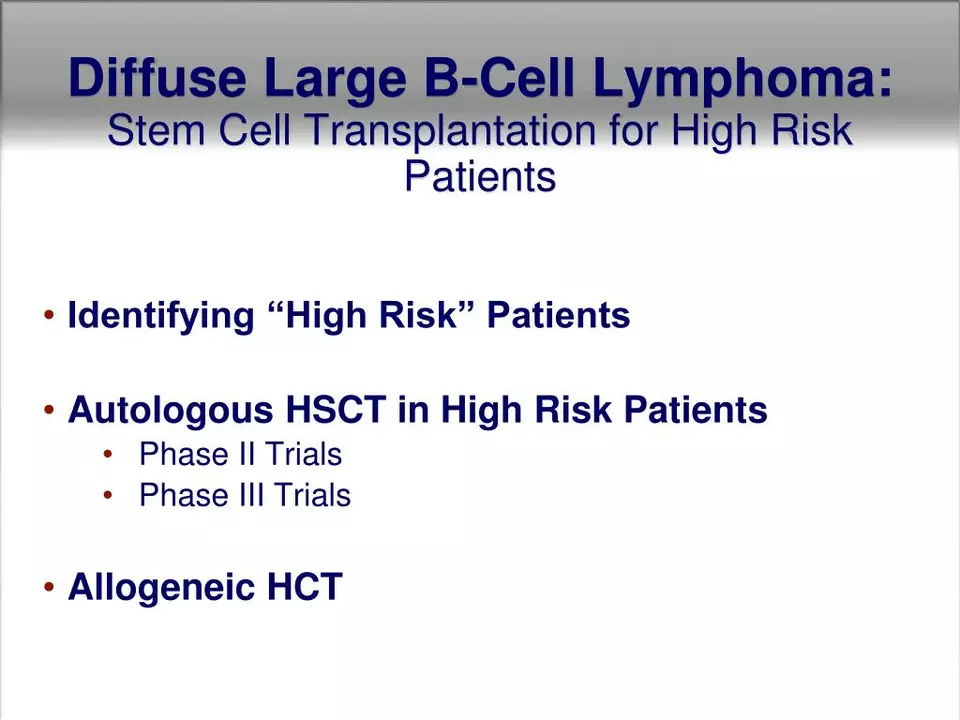Understanding Cell Lymphoma: What You Need to Know
If you’ve heard the term "cell lymphoma" and wondered what it really means, you’re not alone. Cell lymphoma is a type of cancer that affects your lymphatic system, which plays a critical role in your immune defense. Basically, it happens when certain cells in your lymph nodes grow uncontrollably. Early signs can be subtle, so knowing what to look for is important.
The most common symptoms include painless swelling in lymph nodes, often in the neck, armpits, or groin. You might also notice unexplained weight loss, night sweats, or a persistent fever. These signs don’t always mean lymphoma, but if they stick around, it’s worth checking with a healthcare professional.
How Cell Lymphoma Is Diagnosed and Treated
Doctors usually start with a physical exam and blood tests. Imaging tests like CT scans or PET scans help see where the lymphoma is. The key step is a biopsy – removing a small piece of tissue from a swollen lymph node to check under a microscope. This confirms whether lymphoma cells are present and identifies the subtype.
Treatment varies depending on the lymphoma type and stage. Common options include chemotherapy and radiation therapy. Some patients might get targeted therapy drugs that focus on specific cancer cells. In certain cases, stem cell transplants or immunotherapy can be part of the plan. The goal is to control the disease and maintain quality of life.
Living With and Beyond Lymphoma
Managing lymphoma can feel overwhelming, but stay proactive and keep open communication with your medical team. Regular follow-ups and symptom tracking help catch any changes early. Lifestyle factors like healthy eating, staying active, and avoiding infections support your recovery and overall well-being.
Remember, many patients live long, fulfilling lives with lymphoma thanks to advances in treatment. Don’t hesitate to ask questions, seek support groups, and use resources that help you understand your condition better. Good information is your best tool for taking charge of your health.

The Importance of Sleep and Rest for Cell Lymphoma Patients
- Date: 6 May 2023
- Categories:
- Author: David Griffiths
As a cell lymphoma patient, I cannot stress enough the importance of sleep and rest during this challenging journey. Adequate sleep helps our bodies repair damaged cells, strengthen our immune system, and reduce inflammation, making it crucial for our overall well-being. Furthermore, it improves our mental health, reducing anxiety and depression, which can be common among cancer patients. So, let's prioritize getting enough quality sleep and rest to support our healing process and maintain a positive outlook. Remember, taking care of ourselves is the first step towards recovery.




